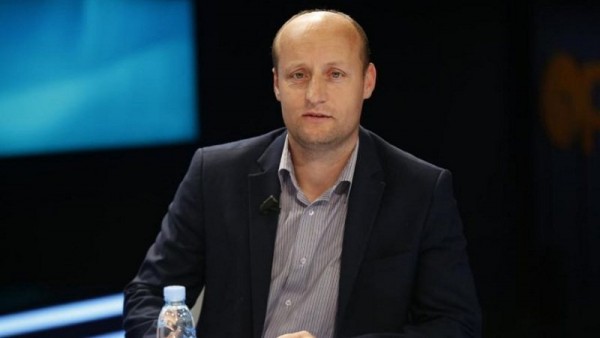Α true nightmare, a harsh experience, a never-ending case hanging over your head: these are just a few of the ways Greek journalists have described the ordeal of being targeted in libel lawsuits by powerful politicians or businesspersons.
Seeking hundreds of thousands or even millions of euros in compensation, these lawsuits have led many Greek journalists to financial ruin, caused them severe professional damage and, most importantly, imposed a wider sense of self-censorship in newsrooms.
But this article is not about another Greek journalist trying to prepare for a long, painful and uncertain legal dispute.
Instead, it is the story of how reforms that the Greek Parliament passed last December to the country’s press law helped one Greek reporter avoid a €100,000 libel suit and allowed her to keep doing what she does best: informing the public and holding those in power accountable.
‘Tuition’ scandal
In January 2016, the reporter, Dimitra Tsampodimou, wrote an article in the Thessaloniki-based daily newspaper Makedonia examining the political and professional career of Alexandros Triantafyllidis, a former journalist and current member of the Greek Parliament for the SYRIZA party.
Tsampodimou had been prompted to write about Triantafyllidis following controversial statements he made in a commentary for the left-leaning newspaper Avgi earlier that month. Among other things, Triantafyllidis had suggested that Greek public schools should cover all the educational needs of young students. This way, he claimed, families would not have to pay large amounts for extracurricular lessons, such as in foreign languages etc.
Triantafyllidis then went a step further, proposing that a portion of the voluntary subscription parents pay each year to the local parents’ union should be redirected to the teachers who would be responsible for delivering extra lessons.
“For example, in a class of 25 students, each student would have to give €60/month (€0 for an unemployed family and up to €120 for a wealthy one), thus reaching €15,000/year,” Triantafyllidis wrote. “Each student/family would have to pay €600/year.”
The proposal caused a stir in the press and on social media, generating headlines such as “Triantafyllidis proposes tuition for public education”. His party, SYRIZA, also expressed dissatisfaction and tried to distance itself from the suggestion, stating that the commentary reflected Triantafyllidis’ personal opinion only.
Several days later, Tsampodimou published her article in the “‘portrait” section of Makedonia, reflecting back on Triantafyllidis’ career and his ideas for public education.
Triantafyllidis reacted furiously to the piece and filed a civil defamation lawsuit against Tsampodimou, requesting €100,000 in compensation. His main argument was that he never actually mentioned the word “tuition” in his article.
Avoiding court
Greece’s civil defamation law was long known as the “press killer”, a nod to the ease with which it could be abused to silence the media.
“There is a good reason why this whole thing [of filing libel suits] was called an ‘industry’, since almost daily many colleagues of mine were taken to the courts just because someone felt offended by the scandals that they had brought to light,” Tsampodimou told the International Press Institute (IPI) in a recent interview.
And at an earlier time, she herself would now be preparing to face the “press killer’s” wrath in court.
However, after significant pressure by journalistic unions and institutions, as well as by international groups such as IPI, the Greek Parliament in December 2015 approved a wide-ranging reform to the measure. Among the most significant changes was the introduction of a pre-trial period during which plaintiffs must allow an impugned media outlet to restore the alleged harm done. If the media outlet retracts the offending content or otherwise remedies the harm done, plaintiffs are barred from pursuing damages in court, except in the case of material harm, which is generally difficult to prove.
In Tsampodimou’s case, this provision proved critical. The editor-in-chief of Makedonia reached an agreement with Triantafyllidis allowing him to publish a commentary in the paper defending himself. In return, Triantafyllidis agreed to withdraw his case. For her part, Tsampodimou would not need to modify her article so as to imply anything that she had written was untrue.
Tsampodimou said that the legal changes, which were pushed through by former Greek Justice Minister Nikos Paraskevopoulos, had substantially changed the balance of power in defamation cases.
“The new reforms give you the chance to resolve the conflict before it reaches the courts and the judges,” she explained. “After all, these powerful people seem to have a lot of money to support these legal suits, which is not the case for media firms, for which legal expenses are considered to be a kind of luxury they cannot afford.”
Tsampodimou emphasised that a court case is not an easy thing to handle. In particular, she pointed out that, in addition to money and mental strength, trials require a lot of time on the part of the defendant to prove his or her point – with the outcome still uncertain.
“For example, in my article, I was making judgments in an ethical context based on ethical principles,” she recalled. “I am afraid that if we had gone to the court, the judges would probably not get to the substance of my article, but judge it according to narrow legal frameworks and technical details.”
As a result, Tsampodimou said, “a mistake in a date that does not alter at all the meaning of the article or the purpose could be enough to get me convicted”.
Journalist vs. journalist
Although Tsampodimou is satisfied with the way things turned out, there is still another issue she feels needs to be addressed regarding her case: the fact that the lawsuit against her was filed a former journalist and current fellow member of the Journalists’ Union of Macedonia and Thrace Daily Newspapers (ESIEMTH).
“Given that our union has been fighting for years against the ‘industry’ of libel suits against the press, I consider it incredible that a former journalist would make use of his political privileges and act against a another journalist”, Tsampodimou told IPI.
Like other unions in Greece, ESIEMTH has campaigned strongly against the threat to press freedom from disproportionate libel laws and claims. It said it worked behind the scenes to pressure Triantafyllidis to withdraw his suit, but decided not to stage a public intervention given that both parties were members and out of fear of weakening its position in other, similar cases.
The absence of a public statement left Tsampodimou frustrated. But she added that, in any case, she is happy her ideal is over and, most importantly, that it did not leave her feeling threatened or pressured to censor herself.
“As Triantafyllidis is still in the Greek Parliament, taking decisions affecting all citizens, our work is to examine his actions and not look away regarding anything that may affect people’s lives,” she concluded. “So that is exactly what I will keep on doing.”




